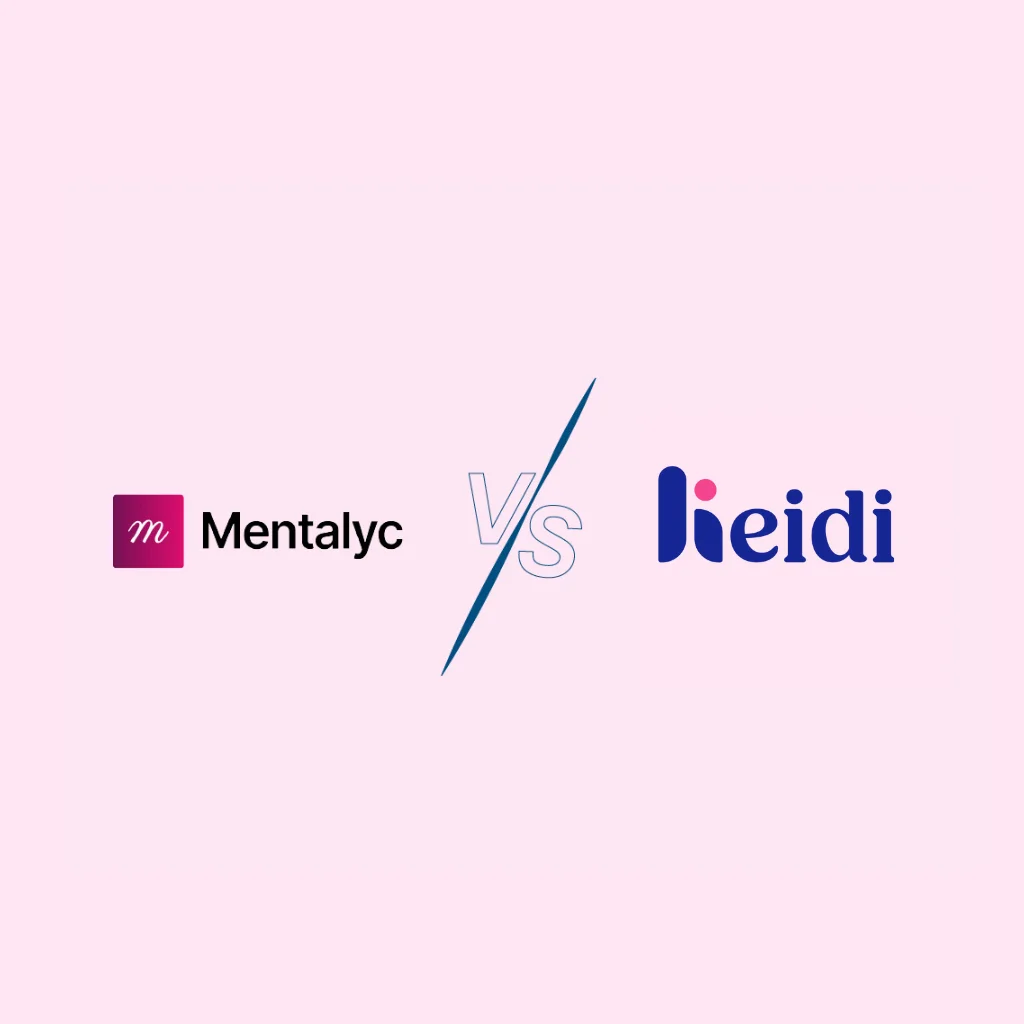Mentalyc vs Heidi: Why Mentalyc is the better choice than Heidi Health
Choosing the right AI platform for therapists can be overwhelming – especially with so many options claiming to do it all.
Today, we’ll compare two popular tools: Mentalyc vs Heidi Health — Mentalyc, designed specifically with therapists in mind, and Heidi, a more general health platform. This comparison will help answer the common question: Is Mentalyc better than Heidi?
We’ll highlight 5 reasons why Mentalyc is the smarter choice for mental health professionals – from better workflow support to more meaningful treatment planning powered by AI-assisted mental health documentation.
Let’s dive in and make your decision easier!
Mentalyc vs Heidi features comparison chart
| Features | Mentalyc | Heidi Health |
| HIPAA compliance & BAA | ✅ | ✅ |
| Data not used for model training | ✅ | ❌ |
| Record any way: Live (in-person & telehealth), Dictated, Uploaded, Typed | ✅ | ❌ |
| Full support for All Client Types (individual, group, couple, family, child) | ✅ | ❌ |
| Various notes formats beyond SOAP | ✅ | ❌ |
| Supervision notes | ✅ | ❌ |
| Treatment Plan with SMART goals suggestions | ✅ | ❌ |
| Progress Tracking | ✅ | ❌ |
| Golden Thread | ✅ | ❌ |
| EHR plug-in | Coming Soon | ✅ |
1 – Mentalyc is a platform that speaks your language – built for therapy, not general healthcare
Heidi vs Mentalyc – unbiased review
Heidi is a note-taking platform designed for a broad range of healthcare specialties, whereas Mentalyc is a mental health-first platform – created with the support of therapists, for therapists.
Mentalyc offers a more tailored experience because it was built from the ground up with input from mental health professionals. Its features, language, and workflows are specifically aligned with the needs of therapists, making daily tasks like note-taking, treatment planning, and supervision more intuitive. Unlike general platforms like Heidi, Mentalyc understands the nuances of mental health work – which means less time spent adapting the tool, and more time focused on clients. This distinction becomes especially clear when comparing Mentalyc vs Heidi for mental health professionals.
2 – Notes built by therapists, backed by research – not just community templates
Mentalyc vs Heidi AI note comparison
In Mentalyc, all templates are carefully designed and created by experienced therapists. They’re built on thorough user research and real-world feedback to ensure they truly align with your unique style, therapeutic approach, and modalities. This attention to detail means the notes generated are accurate, clinically relevant, and require minimal editing – helping you save time while maintaining high-quality documentation that meet insurance requirements and support HIPAA-compliant note-taking for therapists.
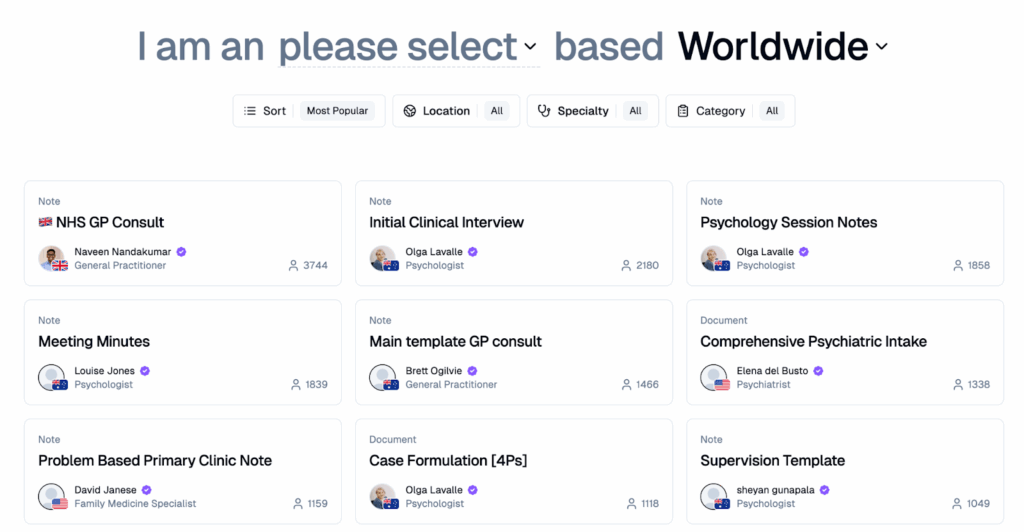
In contrast, Heidi relies primarily on community templates – that is, templates created by other users from different professions – which can be risky, as their quality, clinical accuracy, and compliance may vary significantly.
This gap in quality is often highlighted in Mentalyc vs Heidi user reviews, especially when it comes to delivering insurance-ready mental health notes.
3 – Templates that work for you – not ones that make you work
Mentalyc vs Heidi for Accuracy and Compliance
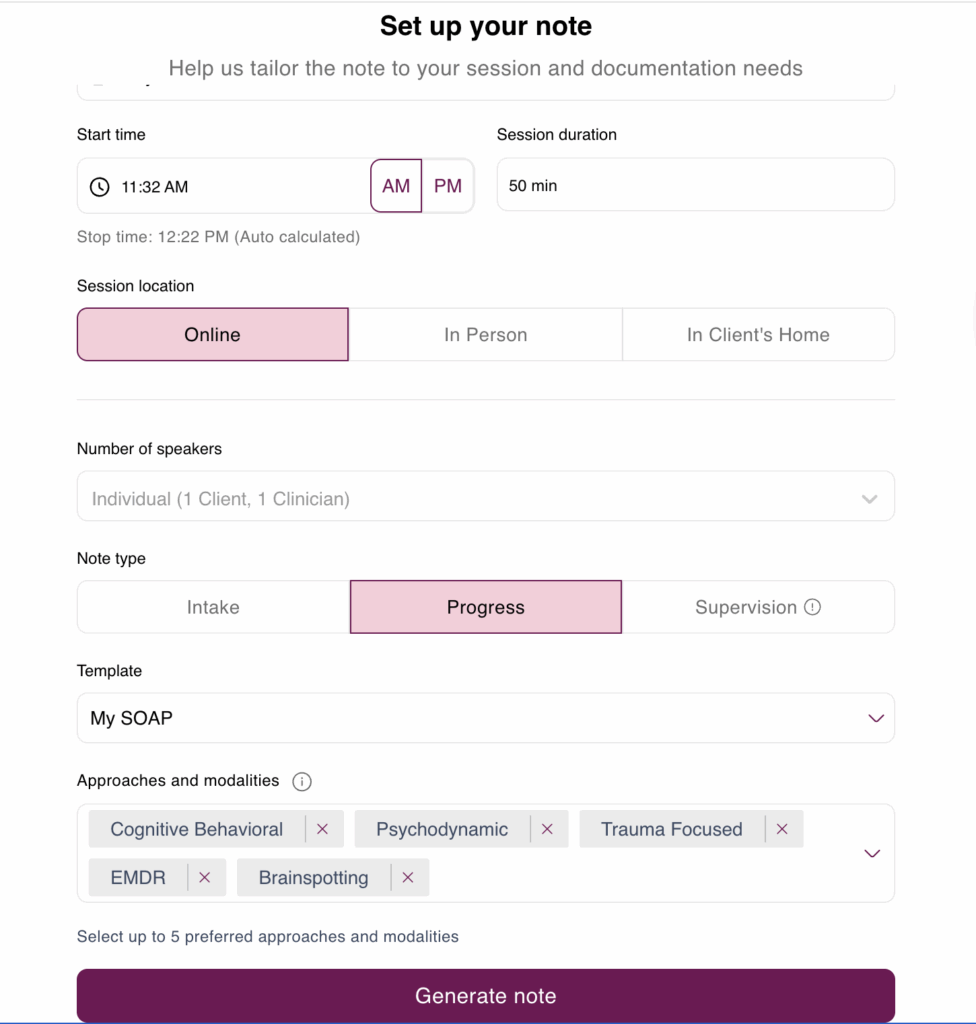
Mentalyc is built around a library of clinically developed templates – with deep customization options that go far beyond CBT (Cognitive Behavioral Therapy). Whether you practice EMDR, ABA, play therapy, social work, or work as a PMHNP, Mentalyc offers a wide range of note formats to choose from – including SOAP, DAP, PIRP, SIRP, GIRP, BIRP, PIE, MSE, custom templates, and more. Mentalyc is designed to support your specific modality, language, and workflow, adapting seamlessly to how you practice with automated therapy progress notes and secure data handling for therapists in mind.
Heidi offers only basic templates for therapists – SOAP. The rest must be searched through community templates or created from scratch by the therapist. While this may sound like a highly flexible, personalized approach, in practice it shifts the burden of prompt creation onto the therapist. This is not only time-consuming but also risky – therapists are not prompt engineers.
Why choose Mentalyc over Heidi? Instead of streamlining your workflow, Heidi adds friction and cognitive load by requiring therapists to create prompts—just when they’re already managing heavy caseloads. Poorly constructed prompts can also result in incomplete or inaccurate notes that don’t meet compliance standards.
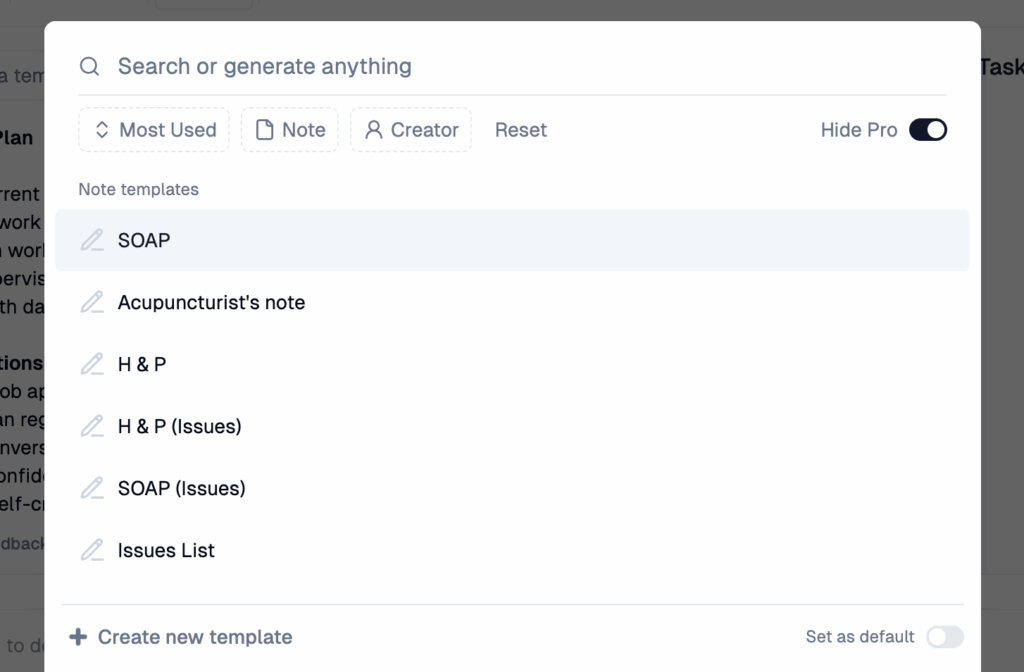
APA emphasizes that clinicians should retain full control over documentation. “AI should assist, not dictate, to avoid bias and maintain ethical integrity.” This aligns with Mentalyc’s clinician‑guided workflow approach.
Mentalyc vs Heidi Pricing Comparison
| Feature | Mentalyc | Heidi Health |
| Starting Price | USD 14.99 / Month | USD 99 / Month |
| Free Trial | YES | YES |
| Customization | ✅ High – easily customizable note templates | ⚠️ Limited – requires complex manual setup |
| HIPAA Compliance | ✅ Full HIPAA-compliant note-taking for therapists | ✅ HIPAA-compliant |
| Group Practice Support | ✅ Yes – Built-in support for group practices with user management | ⚠️ Limited – Better suited for solo practitioners |
4 – Mentalyc offers much more than just note-taking – it’s clinical intelligence
Heidi or Mentalyc, which one truly supports real clinical insight?
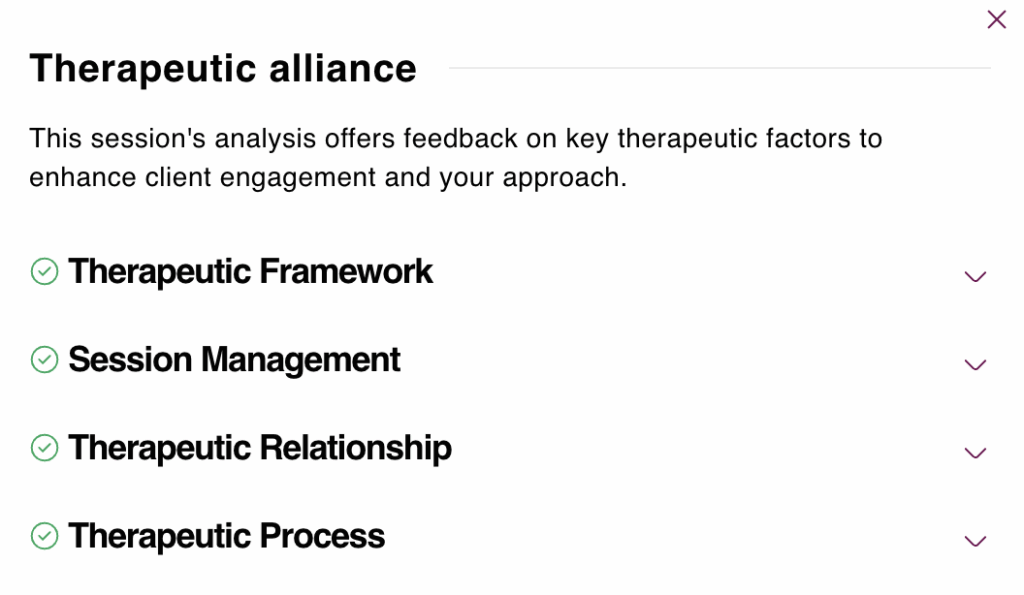
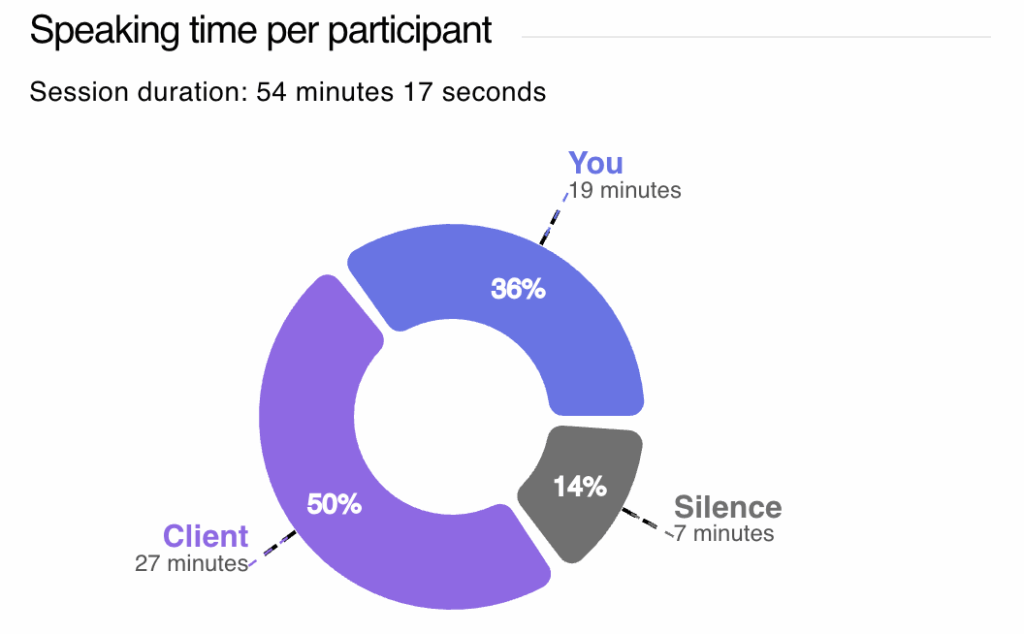
Mentalyc provides deep insights from sessions, including supervision-like feedback and therapeutic alliance analysis. It supports the entire therapeutic workflow, from intake to progress, treatment planning, and tracking. It ensures notes continuity through the Golden Thread, helping therapists stay aligned with goals and outcomes while using clinician-friendly AI tools for a streamlined documentation process.
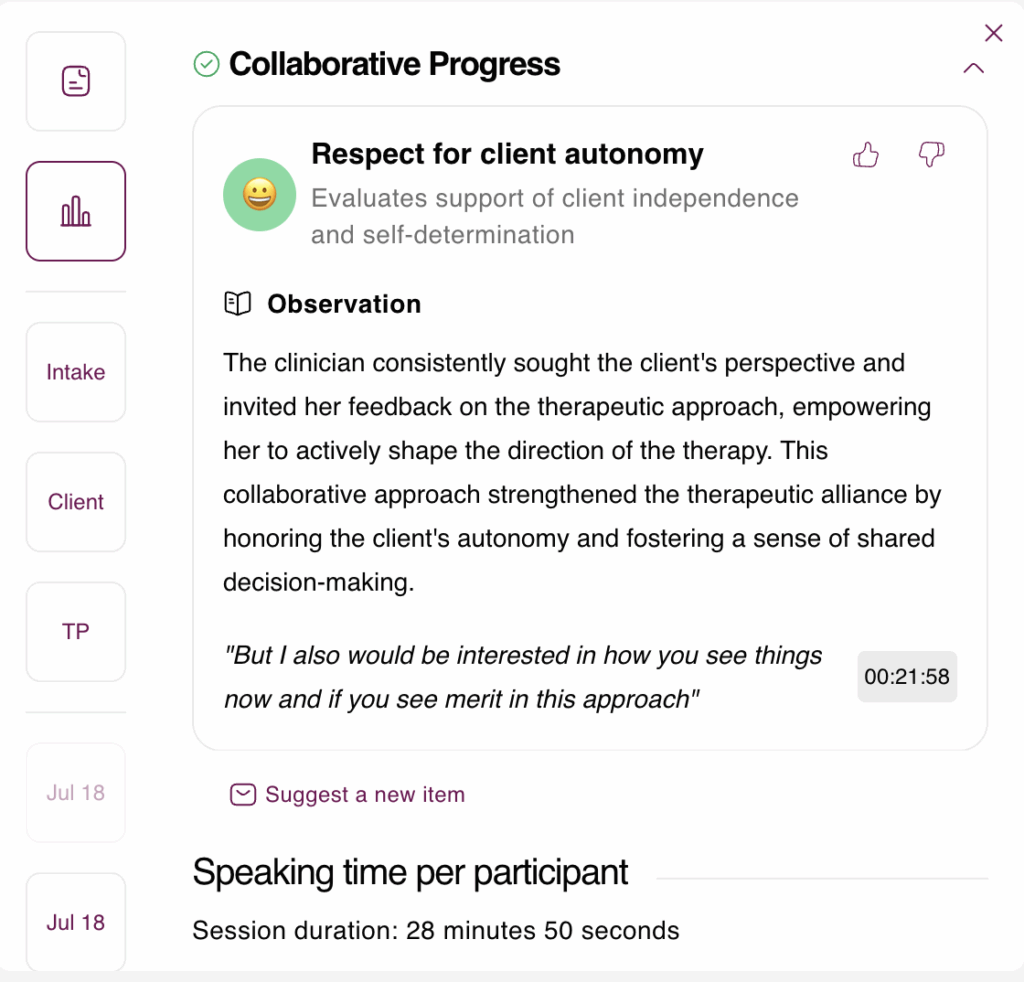
Heidi, on the other hand, doesn’t offer any of that. Its treatment planning is limited to basic community templates, with no built-in support for deeper analysis or workflow continuity.
5 – With Mentalyc, the treatment plan becomes useful, even if you don’t need it for insurance
Which is better for therapy notes – Mentalyc or Heidi?
The Treatment Plan doesn’t have to be just a formality. In Mentalyc, the treatment plan is tailored to your modality and your client’s presenting issues. Based on previous sessions’ analysis, Mentalyc suggests SMART goals and relevant interventions, making the plan a dynamic, clinically meaningful roadmap for the therapeutic journey.
In addition to ready-made templates, the treatment plan is fully customizable – you can include only the sections you find clinically relevant and remove the ones that feel unnecessary. It adapts to your workflow, not the other way around.
Because session context is reflected in the notes and tied to goals, you can easily track progress over time. Instead of being a static document, the treatment plan becomes a living guide that supports both clarity and direction in your work with clients.
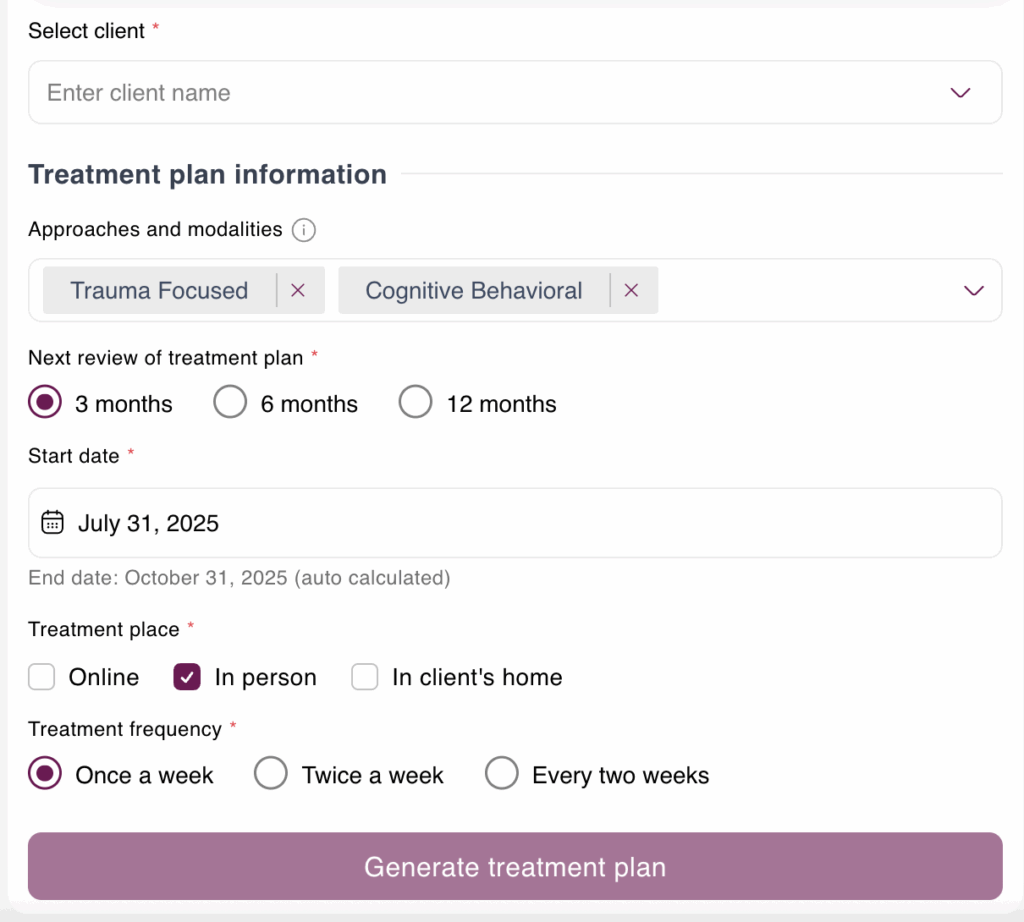
Heidi only offers a basic, community-created treatment plan template. There’s no support for personalization, session-based analysis, or goal tracking – which limits its usefulness to little more than a checkbox exercise and highlights Mentalyc vs Heidi pros and cons in real clinical settings. For those still wondering “What’s the difference between Mentalyc and Heidi?”, this is where the gap becomes most evident.
Heidi or Mentalyc – Which Platform Wins in 2025?
The choice is clear: Mentalyc isn’t a one-size-fits-all tool – it adapts to the way you practice.
Unlike Heidi, which offers only basic, community-created templates and minimal support beyond note-taking, Mentalyc delivers a complete, therapist-first experience. This is especially important when considering Mentalyc or Heidi – which is better?
It’s intuitive and easy to use, so you can focus on your clients instead of fighting the interface or spending time learning how to write effective prompts. Therapists trust it for its note accuracy – notes are context-aware, aligned with session content, and require minimal editing.
With flexible, customizable templates, you can easily adjust your notes and treatment plans to fit your modality, workflow and your clients. Whether you prefer structured templates or want to build your own, Mentalyc adapts to how you work.
Recording is effortless, too – Mentalyc supports all input formats: in-person sessions, Telehealth, dictation, uploads, and manual typing. It’s one of the few video and audio session capture AI tools that’s fully compatible with the tools you already use, like Zoom or other video platforms, so you don’t need to change your workflow to make it work. If you’re working with families or larger caseloads, and trying to decide whether you should choose Mentalyc or Heidi for group therapy documentation, Mentalyc’s flexibility and modality-specific support clearly give it the edge.
And most importantly, it’s more than just notes – it’s clinical intelligence. With treatment planning, SMART goal suggestions, therapeutic alliance insights, and full progress tracking built-in, Mentalyc becomes a powerful ally in your therapeutic journey.
If you’re looking for a platform that delivers high-quality, audit-proof documentation and truly empowers both therapist and client through meaningful, data-informed care, Mentalyc is the clear winner.
See how clinicians describe their experiences with Mentalyc in their own words:
Why other mental health professionals love Mentalyc

“I go back and can read the notes, and it really helps me for the next session. It has made me a much better counselor.”
Licensed Professional Counselor

“It takes me less than 5 minutes to complete notes … it’s a huge time saver, a huge stress reliever.”
Licensed Marriage and Family Therapist

“For anyone hesitant: this is a lifesaver. It will change your life, and you have more time to be present with your patients.”
Licensed Clinical Social Worker

“If I were recommending this software to a colleague, I would tell them that it is the best thing that they could do for their practice.”
Licensed Professional Counselor
Heidi Health vs Mentalyc – Pros and Cons
| Category | Mentalyc – PROS | Mentalyc – CONS | Heidi – PROS | Heidi – CONS |
| User Focus | Designed specifically for therapists | May not be ideal for general health providers | Built for general health workflows | Not tailored to mental health professionals |
| Documentation Workflow | Offers streamlined documentation process with clinical insights | Lack of notes for physicians | Basic notes feature for general use | Limited clinical context and continuity in documentation |
| Customization | Highly customizable templates and treatment plans | None notable | Some templates available | Limited personalization; relies on community-generated templates |
| Treatment Planning | SMART goals, dynamic and modality-aligned plans | Not available in the basic free plan | Community-created basic treatment plan | Lacks real-time insights or goal tracking |
| Security & Compliance | Full HIPAA-compliant note-taking for therapists with secure data handling | None notable | HIPAA compliant | Fewer controls for advanced privacy and access levels |
